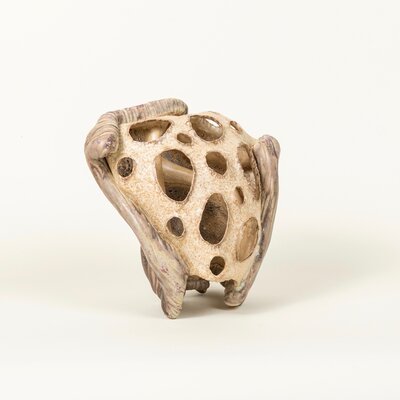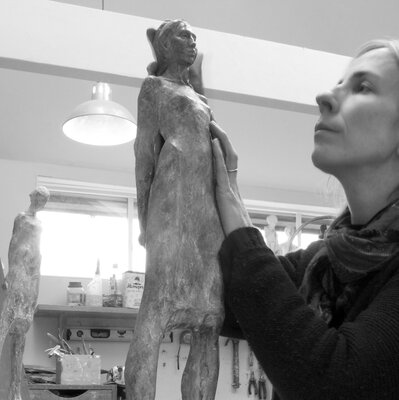Architecture and sculpture are the guiding disciplines for this course. The aim of this course is to develop a language and way of translating ideas about space, material, scale and form into what your tutor calls architectural sculpture.
Plaster sculpture comes in many forms, seemingly miraculously. In its liquid state, plaster can be poured into a mould. In its plastic state, it can also be worked with in situ. In its solid state, it can be manipulated reductively with the use of tools. During this workshop, you will learn these varying properties of plaster by making small test fragments. In doing this, you will develop a greater understanding of the potential and limitations of this versatile material.
We will begin the course by introducing you to the various tools used in plaster sculpture, how to arrange your workspace and how to ensure you have a safe working environment. We will explore methods to mix the material, with reference to ratios of plaster to water. We will then go step-by-step through a series of short sketch exercises to help you develop sculptural prototypes. These will help you form a language of architecture and sculpture and therefore a way to construct space and form. We will work individually but also as a group to learn different methods.
Finally, you will work on your own small architectural sculpture, one which summarises the knowledge gained in this short course. You will leave this course with a set of skills to confidently create a unique sculpture in the future on your own.
Included
On this course, the college will supply most of the materials, including the plaster used for the workshop.
What students need to bring
- A flexible mixing bowls (ideally rubber – salad bowl size)
- Drawing materials
- Sketchbook
- An apron/ old clothing
- Some references of sculptures that interest you
Available to buy
Available from shop:
- A good variety of art materials to purchase
Additional information
Please wear appropriate clothing/aprons for the workshop or studio, this includes stout covered footwear (no sandals or open toes).
Arrival day - first date of course
Residential students can arrive from 4pm, non-residential students to arrive by 6.45pm for registration
Student welcome, followed by dinner: 6.45pm (dinner included)
Teaching session: 8pm-9pm (attendance is essential)
Daily timetable
Course teaching: 9.15am-5pm
Morning session: 9.15am-12.45pm including coffee/tea break
Lunch break: 12.45pm-2pm (lunch included)
Afternoon session: 2pm-5pm including coffee/tea break
Teaching finishes: 5pm
Evening working: students may have access to workshops until 9pm, but only with permission from the tutor and provided any health and safety guidelines are observed.
Departure day - last date of course
Course teaching: 9.15am-3pm (lunch included)
Teaching finishes: 3pm
Residential students will need to check out of rooms by 10am.
Please note, the tutor may make slight variations to the daily timetable as required.





